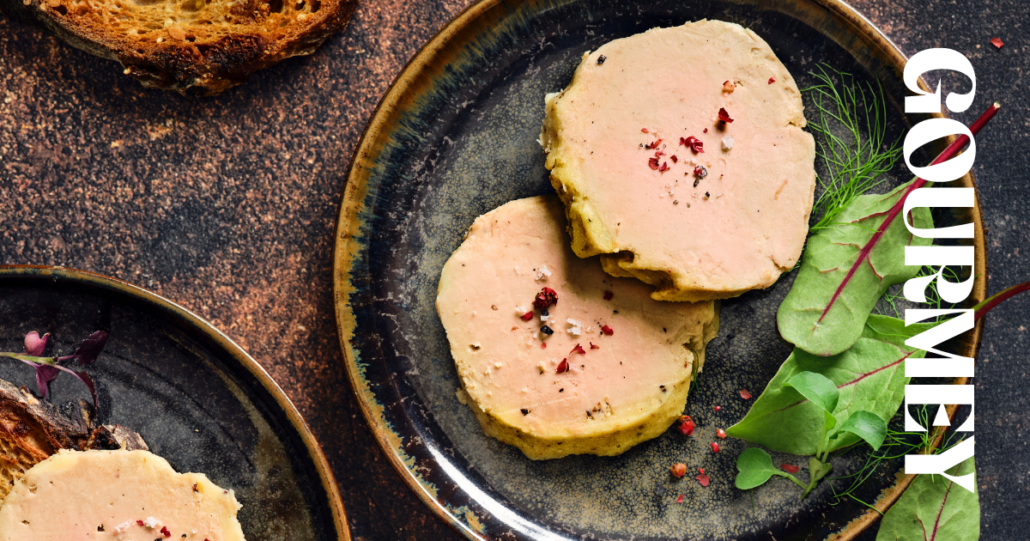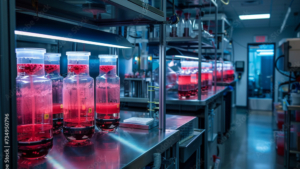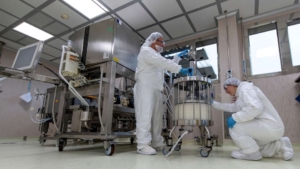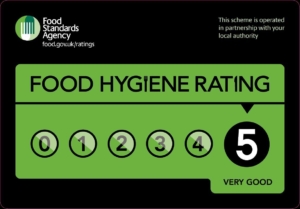
Gourmey files first EU application for cell-based meat
Not the German InFamily Foods subsidiary The Cultivated B, but Gourmey SAS, founded in Paris in 2019 by Antoine Davydoff, Nicolas Morin-Forest and Victor Sayous, has submitted the first EU authorisation application for a cell-based meat product, a duck liver pâté (Foie gras), to the European Food Safety Authority (EFSA).
At the time of its EU market authorisation application, Gourmey SAS, which has raised €57.8m so far, has applied for authorisation from the competent authorities in the UK, Switzerland, Singapore and the USA.
Ivo Rzegotta, responsible for political communication at GFI Europe interest group, described the application as an important signal for the sector: ‘Cultivated foie gras opens up the opportunity to harmonise European culinary traditions with climate, environmental and animal protection. The first authorisation application for cultured meat in the EU is an important step towards a sustainable and resilient food system. It can strengthen Europe as a centre of innovation and business with future-proof jobs. In addition, cultured meat offers farmers an opportunity to diversify their business, for example by producing ingredients for the nutrient solution.’
This last point seems important in the face of strong opposition from farmers not only in France, but also in Italy, Hungary and four other EU countries, in order to counteract planned or already established market restrictions on sustainable biotech products in contravention of EU law and to give farmers a place in a sustainable, decarbonised food system.
The application will now be followed by one of the most lengthy but thorough authorisation procedures according to the highest food safety standards in the world, which will take at least 18 months. As part of the assessment under the EU Novel Food Regulation, the potential social, economic and environmental impact will also be taken into account. In addition to the European Commission and the scientific experts, the member states are also closely involved in the process.
The first authorisations for cultured meat have already been granted in Singapore, the USA and Israel. Companies such as The Cultivated B state that they are in preliminary discussions with the authorisation authority EFSA, including the German company The Cultivated B and the Dutch start-up Mosa Meat, in which the Wiesenhof parent company PHW Group, among others, is invested.
In Germany, the conventional production of foie gras is banned, as the Animal Welfare Act prohibits the force-feeding of animals. However, many tonnes of this conventional liver pâté are imported from abroad every year and sold in delicatessens and restaurants. The same applies to many other countries, including Austria, Switzerland and Italy.
Once cultured foie gras is deemed safe by the competent authorities and authorised for sale, consumers in the EU will have the opportunity to enjoy foie gras without the associated negative side effects on animal welfare and the environment. Gourmey states that they produce their product without animal ingredients such as calf serum (TCS) and without antibiotics.
Initial studies on the ecological footprint of cultured meat show that greenhouse gas emissions could be reduced by up to 92% and land requirements by up to 90%. With regard to poultry meat in particular, a study from this year found that greenhouse gas emissions could be halved compared to meat from livestock farming and that land requirements could be reduced by 90%.


 adobe stock photo - JR-50
adobe stock photo - JR-50 Menarini Group
Menarini Group FSA UK
FSA UK